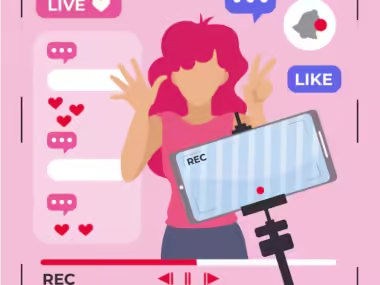
Harnessing Technology for Mental Health: The Rise of Mental Health Apps
In today’s fast-paced world, where stress and anxiety can often feel like constant companions, the role of technology in supporting mental health has become increasingly vital. Mental health apps have emerged as powerful tools, offering support, guidance, and resources at our fingertips. From meditation to mood tracking, these apps cater to a wide range of needs, providing users with accessible and often personalized ways to manage their mental well-being.
Empowering Individuals through Accessibility
One of the greatest advantages of mental health apps lies in their accessibility. Unlike traditional therapy, which may involve scheduling appointments and waiting lists, these apps are available anytime, anywhere. Whether you’re on a crowded subway or relaxing at home, support is just a tap away. This accessibility democratizes mental health care, making resources available to those who may not otherwise seek or afford professional help.
Personalized Support: Tailoring Mental Health to Your Needs
Personalization is another key feature of many mental health apps. Through algorithms and user input, these apps can tailor their recommendations and exercises to fit individual needs. Whether you’re struggling with insomnia, coping with depression, or simply seeking to manage daily stress, apps can offer targeted solutions. This personalized approach not only enhances effectiveness but also fosters a sense of agency and control over one’s mental well-being.
Tools for Self-Reflection and Growth
These apps often incorporate tools for self-reflection and growth. Features like mood trackers and journal prompts encourage users to reflect on their emotions and behaviors, fostering greater self-awareness. By identifying patterns and triggers, individuals can gain insights into their mental health and make informed decisions about self-care and treatment options.
Building Healthy Habits: From Meditation to Mindfulness
Many mental health apps emphasize the practice of mindfulness and meditation, offering guided sessions that promote relaxation and stress reduction. These practices have been scientifically proven to enhance mental well-being by reducing anxiety and improving mood. By integrating these exercises into daily routines, users can cultivate healthy habits that contribute to long-term resilience and emotional balance.
Community and Support Networks
Beyond individual tools, some of these apps create virtual communities where users can connect with others facing similar challenges. So, these peer support networks offer empathy, encouragement, and shared experiences, reducing feelings of isolation and fostering a sense of belonging. Whether through chat forums or virtual support groups, these communities provide invaluable social support in times of need.
Evidence-Based Approaches: Bridging Science and Technology
Critically, many mental health apps are grounded in evidence-based approaches validated by scientific research. From cognitive-behavioral therapy (CBT) techniques to dialectical behavior therapy (DBT) strategies, these apps draw on established principles of psychology to deliver effective interventions. By adhering to evidence-based practices, users can trust that the tools and techniques offered are backed by rigorous research and clinical expertise.
Challenges and Considerations: The Human Touch in Digital Solutions
Despite their benefits, mental health apps are not without challenges. Some users may find it difficult to maintain consistent engagement or may require additional support beyond what apps can provide. Moreover, concerns about data privacy and the quality of information delivered through apps underscore the importance of informed decision-making when selecting a mental health tool.
Looking Ahead: The Future of Mental Health Apps
As technology continues to evolve, so too will the landscape of mental health apps. Innovations such as artificial intelligence (AI) and machine learning hold promise for further personalizing and enhancing the effectiveness of these tools. Integrating wearable devices and biometric data could provide real-time insights into mental health trends, enabling proactive rather than reactive care.
conclusion:
Mental health apps represent a powerful fusion of technology and psychology, offering accessible, personalized, and evidence-based support for individuals navigating life’s challenges. As society increasingly recognizes the importance of mental health, these apps serve as invaluable tools in promoting well-being and resilience. By harnessing the potential of technology, we can empower individuals to take proactive steps towards mental wellness,Thereby ensuring that support is always within reach.





